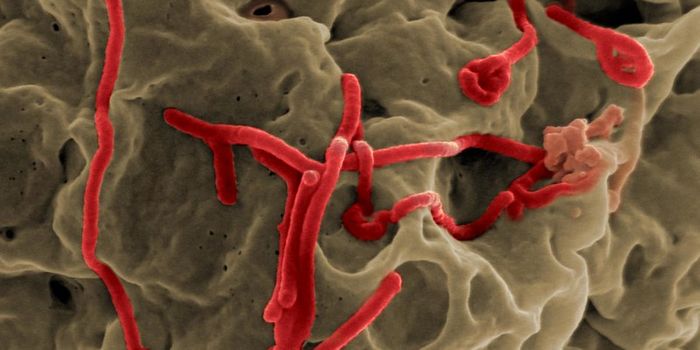Blue Whales 'Remember' Prey Hotspots, and That Could be Bad
Understanding the complex patterns that exist between predators and their prey isn’t always easy, especially in the realm of marine wildlife in which animal subjects spend most of their time concealed beneath the veil of the ocean’s surface. But that hasn’t stopped a curious team of researchers from making strides in learning more about prey discovery in blue whales.
Image Credit: Oregon State University
After analyzing more than a decade’s worth of tagging data and cross-referencing it with oceanic satellite data, the researchers found that blue whales are more likely to rely on their memory of previous successful feeding zones as than they are to dynamically track active prey hotspots during migration. The findings are scheduled to be published next week in the journal Proceedings of the National Academy of Sciences (PNAS).
Predatory patterns of this nature are already known to exist in a bevy of migratory land animals like caribou and wildebeests, but it’s almost unheard of for researchers to be able to associate these characteristics with marine animals, especially one as massive as the blue whale.
"We know that many species that migrate on land, from caribou in the Arctic to wildebeests in the Serengeti, enhance their survival by carefully adjusting the pace and timing of their migrations to find food as it becomes seasonally available along the way, rather than just migrating to get from point A to point B," explained Briana Abrahms, the paper’s lead author.
"These long-lived, highly intelligent animals are making movement decisions based on their expectations of where and when food will be available during their migrations," she continued.
Related: Have you ever wondered how the blue whale became so large?
Given just how large a blue whale can become, it’d be an understatement to claim that their memory-centric predatory habits work well for them. On the other hand, these habits could have drastic consequences if climate change continues to rear its ugly head and change the natural order of our oceans.
More specifically, warming oceans could alter the dynamics of prey availability in certain regions and consequently impact the blue whale’s aptitude for finding food as they travel their typical migration route. This concerning thought has implications for the blue whale because their remembrance of previously-successful feeding zones would be rendered obsolete if prey relocated to cooler waters.
"There is still a lot we don't know about blue whales, but it is apparent that they have strong fidelity to certain sites along the West Coast of the United States, which they use year after year," added Bruce Mate, a co-author of the paper.
Related: A specific group of California-centric fin whales stays there year-round
The study underscores the importance of studying climate change’s impact on the ocean, as it could eventually trickle down to the blue whale and impact the species’ ability to find its prey. Moreover, it could help researchers identify whether the blue whale will be a candidate for conservation measures before it’s too late.
Source: EurekAlert, PNAS









